THE HAGUE: South Africa on Tuesday urged the International Court of Justice (ICJ) to issue a non-binding legal opinion that the Israeli occupation of Palestinian territories is illegal, arguing it would help efforts to reach a settlement.
Representatives of South Africa opened the second day of hearings at the ICJ, also known as the World Court, in the Hague.
The hearing follows a request by the UN General Assembly for an advisory, or non-binding, opinion on the occupation in 2022. More than 50 states will present arguments until Feb. 26.
Alongside the South African legal team, representatives from Algeria, Saudi Arabia, the Netherlands, Bangladesh, and Belgium also presented preliminary arguments.
This is said to be the largest case at the ICJ and at least three international organizations are also slated to address the judges at the UN's top court until next week. A nonbinding legal opinion is anticipated following months of judge deliberations.
On Monday, Palestinian representatives articulated their stance on the legal repercussions of Israel's occupation of the West Bank, East Jerusalem, and Gaza Strip. They asserted that the occupation is illegal and must cease immediately, unconditionally, and entirely.
Israel has abstained from attending the hearings but submitted a five-page written statement expressing concerns that an advisory opinion would hinder attempts to resolve the conflict, citing prejudiced questions posed by the UN General Assembly.
Read a summary of Tuesday's arguments below:
- 2:50 p.m. (GMT) Bolivia condemns Israel's discriminatory actions
Roberto Calzadilla Sarmiento, Bolivia's ambassador in the Netherlands, condemned Israel's discriminatory actions in the Palestinian Territories.
Sarmiento unequivocally denounced Israel's ongoing occupation of the Palestinian Territories as a clear violation of international law, the envoy said.
Sarmiento accused Israel of implementing discriminatory measures with colonial intent, aimed at dispossessing the Palestinian population and altering the demographic landscape of Jerusalem. These actions, Sarmiento argues, deny Palestinians their rights and violate international norms.
Sarmiento emphasized that Israel's actions carry consequences and obligations for all states and the United Nations. The perpetuation of Palestinian disenfranchisement, Sarmiento asserted, is a breach of Israel's international obligations.
Sarmiento condemned Israel's continuous denial of the Palestinian people's right to self-determination over a span of 75 years. Such deprivation, Sarmiento argued, represents a clear violation of international norms and human rights principles.
Sarmiento highlighted Israel's deliberate efforts to annex Palestinian territory, including the transfer of Israeli settlers and the construction of settlements in East Jerusalem and the West Bank. These actions, Sarmiento contends, aim to solidify Israeli control through colonization, confinement, and the fragmentation of Palestinian territories.
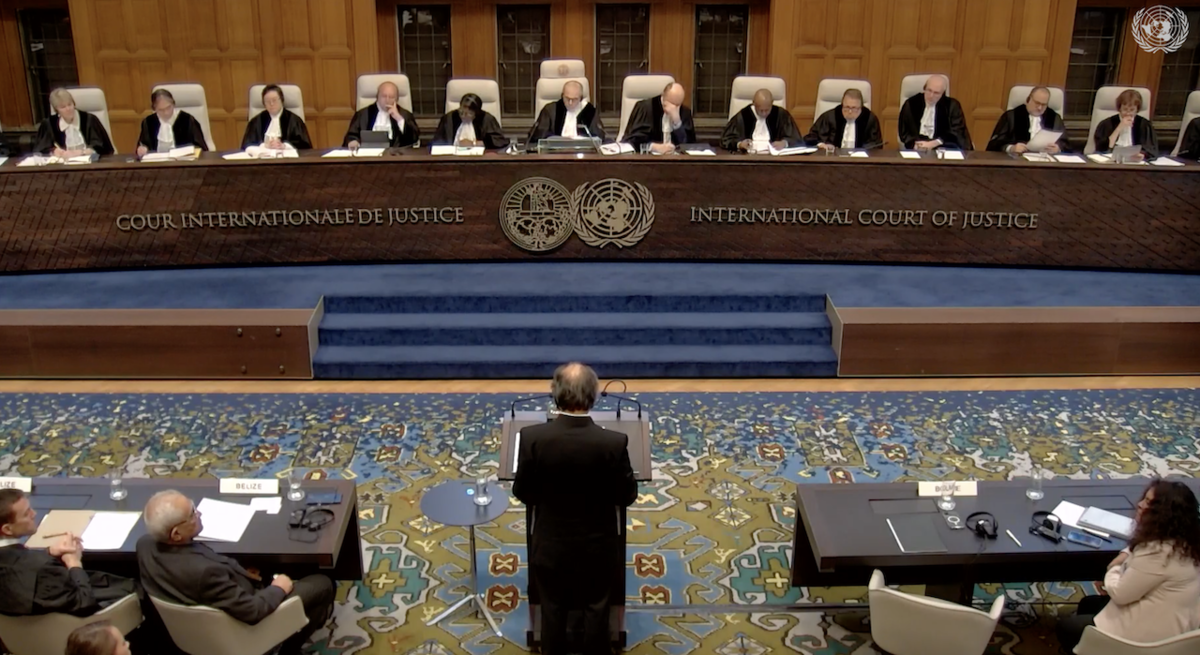
- 2:40 p.m. (GMT) Belize's legal expert asserts Gaza Strip remains occupied despite withdrawal
Advocate Ben Juratowitch has reinforced the argument that the Gaza Strip remains under Israeli occupation despite the withdrawal of Israeli forces and settlers in 2005.
According to Juratowitch, Israel's occupation of Gaza predates and persists beyond specific dates like October 7. He asserts that Gaza has been under Israeli occupation since 1967, and this status remains unchanged.
Occupation, Juratowitch explains, does not solely hinge on the physical presence of troops. Even in the absence of Israeli troops, the capacity for Israel to exert control over Gaza and deploy forces if necessary constitutes continued occupation.
Contrary to claims of withdrawal, Israel's recent actions in Gaza represent a continuation and intensification of its long-term control, including violence and incursions into the territory.
Juratowitch argues that Israel's occupation of Gaza is neither necessary nor proportional. Given the peace treaties signed with Jordan and Egypt, maintaining a military presence in Gaza or the West Bank is deemed unnecessary.
He also stated that Israel's use of force in Gaza, particularly in response to the October 7 attack, is deemed disproportionate and unjustified.
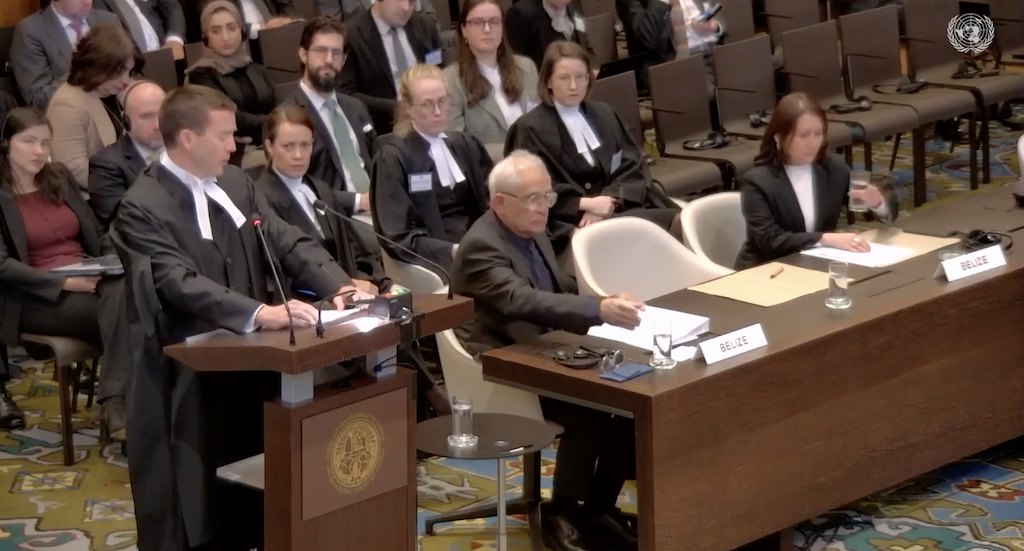
- 2:30 p.m. (GMT) Belize's stance on apartheid and its impact on self-determination
Professor Philippa Webb of King’s College London critiqued Israel's apartheid policies and their impact on Palestinian self-determination.
Highlighting apartheid as a grave violation of human rights, Professor Webb emphasized its correlation with Israel's infringement upon Palestinian self-determination. She argued that the systematic racial oppression and discrimination inherent in apartheid regimes prevent the realization of genuine self-determination for affected populations.
Examining the tangible effects of Israel's discriminatory practices, Professor Webb pointed to the separation wall, permit restrictions, checkpoints, and segregated roads in the West Bank. These measures, she argued, fragment Palestinian communities and intensify their isolation from Israeli Jews.
Turning to Gaza, Professor Webb condemned the prolonged siege and blockade, which have confined millions of Palestinians to ever-shrinking territories, resulting in widespread poverty and desperation. She described Gaza as a symbol of extreme oppression and suffering, exacerbated by Israel's policies.
Professor Webb highlighted Israel's extensive detention of Palestinians since 1967, including tens of thousands of children, as further evidence of its human rights abuses.
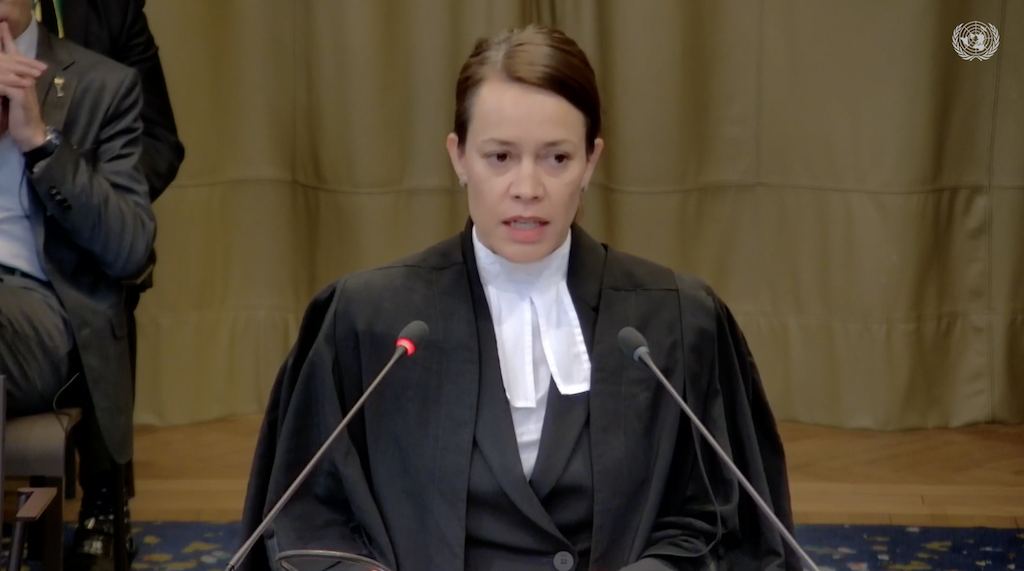
- 2:15 p.m. (GMT) Belize representative urges end to Israeli impunity
Belize representative Assad Shoman emphasized at the ICJ that "Palestine must be free," underscoring the Palestinian people's right to self-determination and independence, which has been consistently denied.
Shoman condemned Israel's manipulation of negotiations to obstruct Palestinian rights, calling for an end to Israel's impunity for violating international law.
He highlighted the urgency of addressing these violations to prevent further humanitarian crises.

- 12:35 p.m. (GMT) Belgium's legal expert condemns Israel's settlement policy as violation of international law
Belgium's legal expert, Vaios Koutroulis, has denounced Israel's settlement policy, highlighting its aim to create permanent demographic changes in Palestinian territories.
Koutroulis emphasized that Israel's settlement policy violates fundamental principles of international law, including the prohibition of acquiring territory by force and the right to self-determination.
He pointed out that the establishment of settlements leads to the creation of two separate systems, one for settlers and another for Palestinians, which exacerbates inequalities.
Belgium condemned violence against Palestinians and urged Israel to end settlement activities, restore expropriated property, and bring perpetrators of violence to justice.
Koutroulis called on third states to refrain from recognizing the legality of the situation, withhold support, and collaborate to end violations of international law.
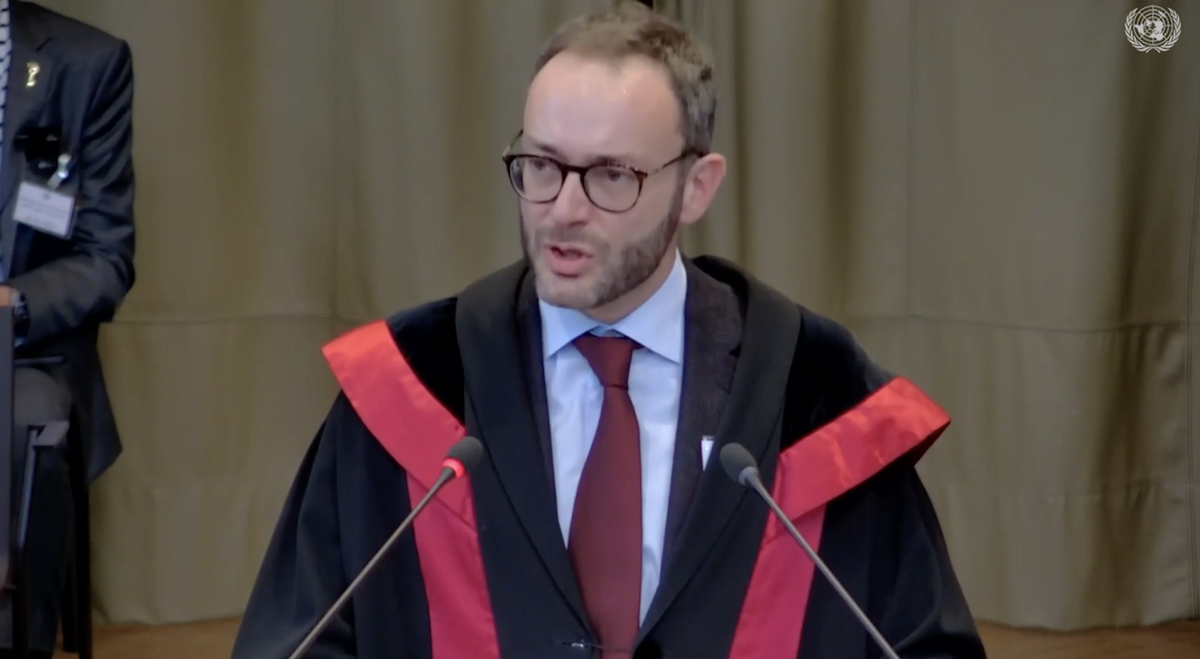
- 12:10 p.m. (GMT) Bangladesh argues Israel cannot use self-defense as a justification for its actions
Riaz Hamidullah, representing Bangladesh, emphasized that the principle of self-defense cannot justify prolonged occupation, addressing the ongoing situation in the Palestinian territories.
Israel's occupation contradicts three fundamental pillars of international law: the right to self-determination, the prohibition of acquiring territory by force, and the prohibition of racial discrimination and apartheid.
In adherence to international law, any occupation must be temporary, and territorial acquisition is illegal. Israel's extended occupation, coupled with territorial expansion, constitutes a violation of international law.
Hamidullah underscored that the right to self-defense cannot excuse breaches of international law, including the right to self-determination. Israel's denial of Palestinian self-determination has led to widespread condemnation and hinders prospects for peace.
He called for Israel to cease all actions hindering Palestinian self-determination, including discriminatory legislation and military presence, and to provide reparations for damages incurred.
Hamidullah urged all states to ensure the cessation of any legal barriers to self-determination and to refrain from recognizing or supporting Israel's illegal acts. Cooperation among states is essential to compel Israel to comply with international law.
He also urged the UN Security Council to consider further action to end the occupation and stressed the urgency of dismantling the apartheid system in place.
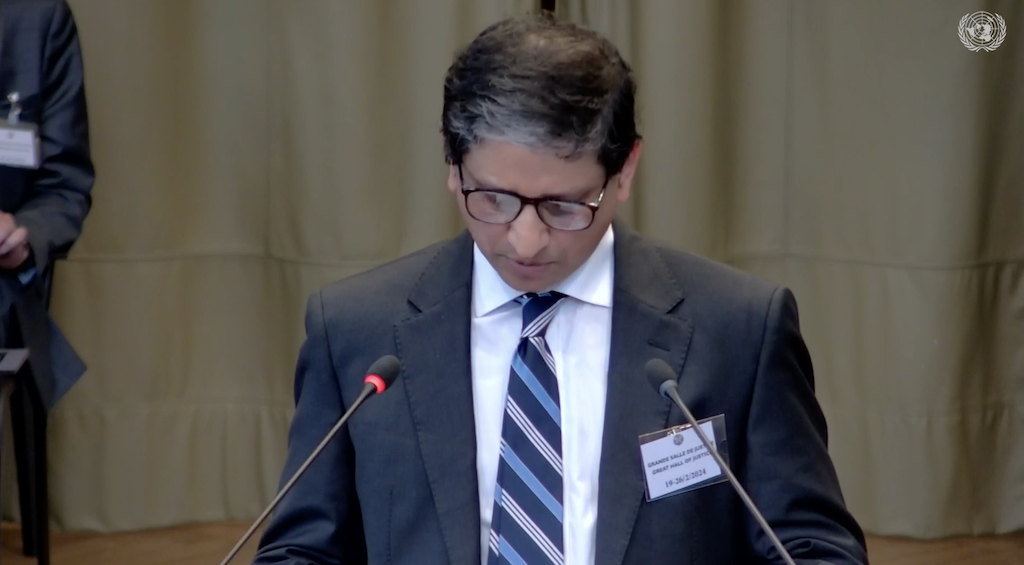
- 11:15 a.m. (GMT) Netherlands affirms Palestinians right to self-determination
René Lefeber, representing the Netherlands at the ICJ, affirmed the court's jurisdiction and emphasized the universal right to self-determination as outlined in the UN Charter.
He highlighted how prolonged occupation undermines this principle and noted the conditions for the legitimacy of occupying foreign territory.
Lefeber concluded that an occupation failing to meet these criteria risks violating the prohibition against the use of force.
Occupying powers are prohibited from transferring populations in the territories they occupy, constituting a war crime under the Rome Statute, Lefeber said.
Once an occupation begins, the occupying power must protect civilians, he added.
Serious breaches of international norms should be addressed at the UN, and if necessary, states must cooperate to end unlawful situations, refraining from recognizing or supporting such breaches, Lefeber concluded for the Netherlands.

- 10:45 a.m. (GMT) Saudi Arabia condemns Israel's actions in Palestinian Territories as legally indefensible
Ziad Al-Atiyah, Saudi Arabia's ambassador to the Netherlands, has strongly criticized Israel for its actions in the occupied Palestinian territories, stating that they are legally indefensible.
Al-Atiyah emphasized the importance of holding Israel accountable for ignoring international law, particularly regarding its treatment of civilians in Gaza and its continued impunity.
Saudi Arabia expressed deep concern over the killing of civilians and rejected Israel's argument of self-defense, stating that depriving Palestinians of basic means of survival is unjustifiable.
Al-Atiyah accused Israel of dehumanizing Palestinians and committing genocide against them, calling for the international community to take action.
Regarding the jurisdiction of the court, Al-Atiyah asserted that the arguments against its jurisdiction lack merit, urging the court to issue an opinion on the matter.
Israel's ongoing disregard for ceasefire calls and provisional measures, as well as its expansion of illegal settlements and expulsion of Palestinians from their homes, were condemned by Saudi Arabia.
The Kingdom highlighted Israel's violations of international obligations, including ignoring UN resolutions condemning its conduct and preventing Palestinians from exercising their right to self-defense.
Israel's intentions to maintain and expand illegal settlements, as evidenced by its 2018 Basic Law declaring Jerusalem as its capital, were also criticized for undermining Palestinian self-determination.
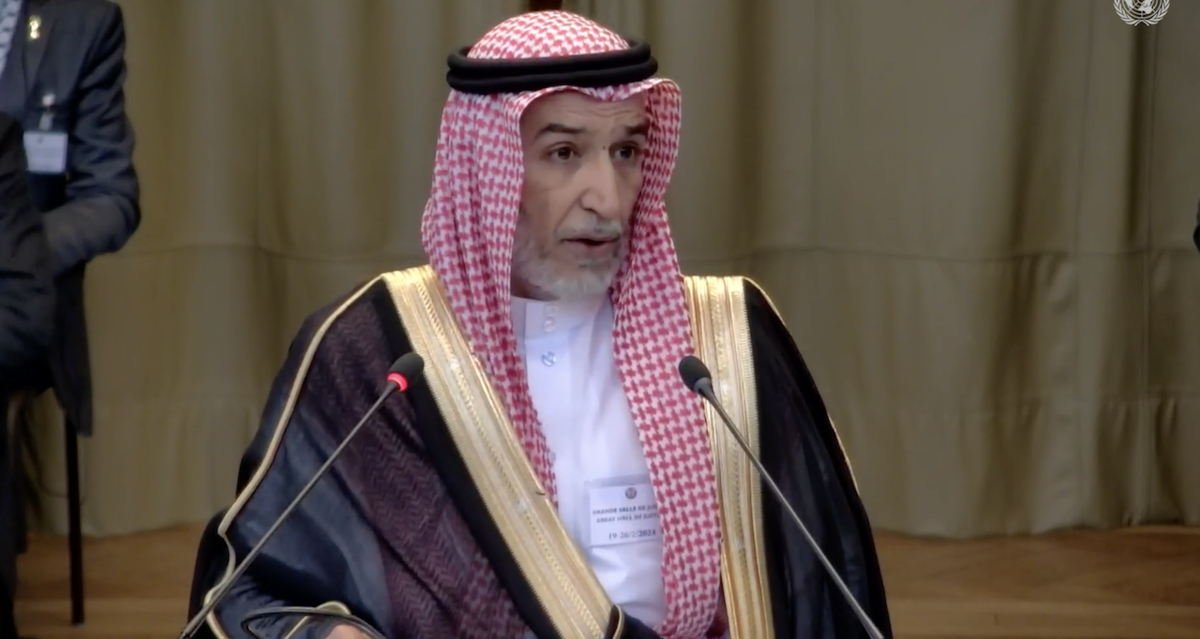
- 10:15 a.m. (GMT) Algeria advocates against prolonged occupation of Palestinian Territories
Algeria's legal representative, Ahmed Laraba, took the floor at the ICJ to present his country's stance on the enduring occupation of Palestinian territories. In his address, Laraba highlighted the intricacies surrounding the concept of prolonged occupation, shedding light on its legal foundations and historical context.
Referencing Article 42 of The Hague Convention of 1907, Laraba underscored the undisputed basis of the notion of occupation, as acknowledged by the court in a previous opinion. He emphasized the temporary nature of the occupation, originally conceived to manage post-conflict situations and facilitate peace agreements.
Laraba pointed out the discrepancy between the intended temporary regime and the reality of a prolonged occupation, noting that the drafters of the time did not foresee a peaceful coexistence between the occupier and the occupied. This incongruity underscores the complexities and challenges inherent in addressing the prolonged occupation of Palestinian territories.
Algeria's intervention at the ICJ serves to advocate for a comprehensive understanding of the legal, historical, and humanitarian dimensions of the occupation issue. Laraba's arguments contribute to the ongoing discourse surrounding the quest for justice and resolution in the Israeli-Palestinian conflict.
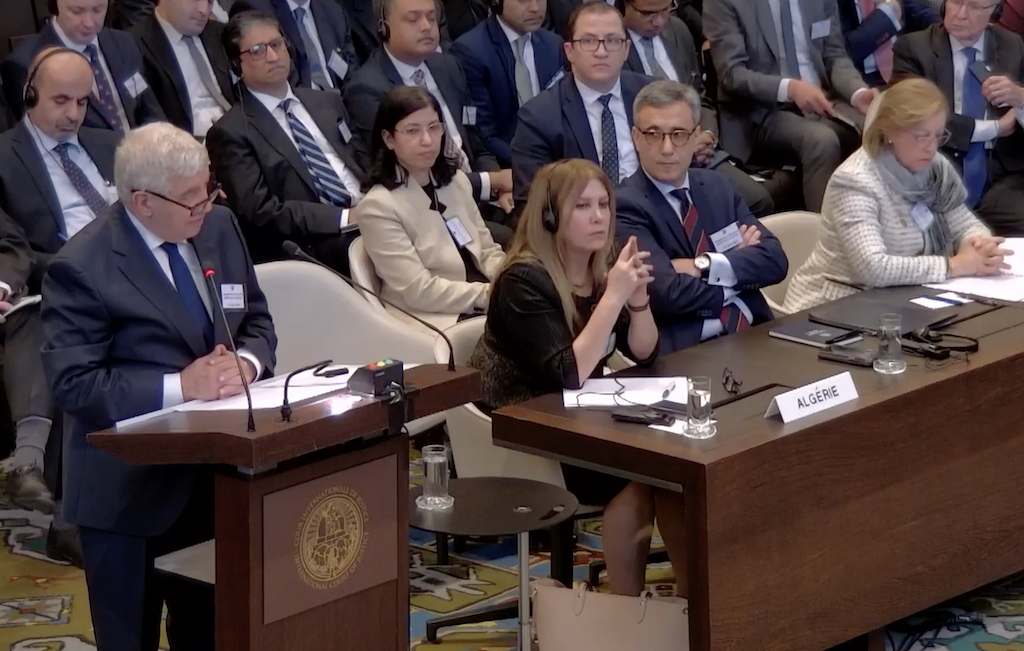
- 9:40 a.m. (GMT) South Africa shifts focus to Palestinian right to self-determination
Pieter Andreas Stemmet, Acting Chief State Law Adviser at the Department of International Relations and Cooperation, announced South Africa's commitment to advocating for the Palestinian people's right to self-determination.
Stemmet emphasized that the UN has repeatedly recognized the inalienable right of Palestinians to self-determination. He condemned Israel's expansion of settlement activity, stating that it violates Article 49 of the Fourth Geneva Convention, to which Israel is a signatory.
In addressing concerns about potential apartheid in Israel, Stemmet referenced the Namibia vs. South Africa case, where the court ruled that race-based exceptions and limitations constitute a denial of fundamental rights and violate the principles of the UN Charter.
Stemmet underscored the well-documented extent of Israel's violations and reiterated that the prohibition of apartheid applies universally, including to Israel.
Drawing parallels to South Africa's illegal presence in Namibia, Stemmet called for attention to the legal consequences of Israel's ongoing occupation of Palestinian territories, including East Jerusalem.
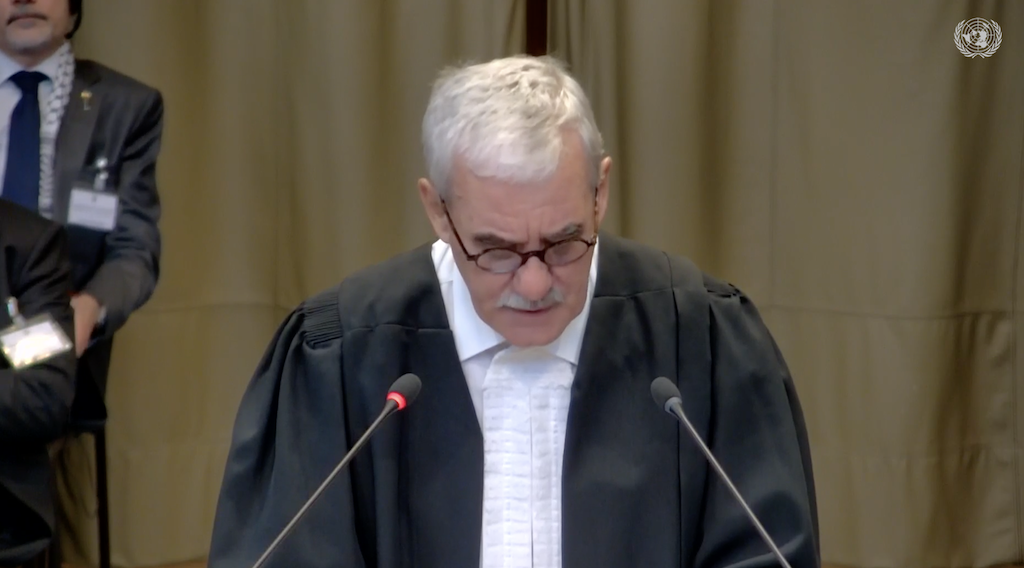
- 9:15 a.m. (GMT) South Africa urges for an end to Israel's violations
South Africa's Ambassador to The Netherlands Vusimuzi Madonsela urged for an end to Israel's violations against Palestinian territories, emphasizing the critical importance of this advisory opinion for Palestinians.
Madonsela highlighted the prolonged occupation, spanning over 50 years, conducted in defiance of international law with little international intervention.
He questioned when Israel's impunity for rights violations and breaches of international norms would cease, particularly amidst ongoing attacks on Gaza and Israel's disregard for legal orders, indicating its belief in unrestricted actions against Palestinians.
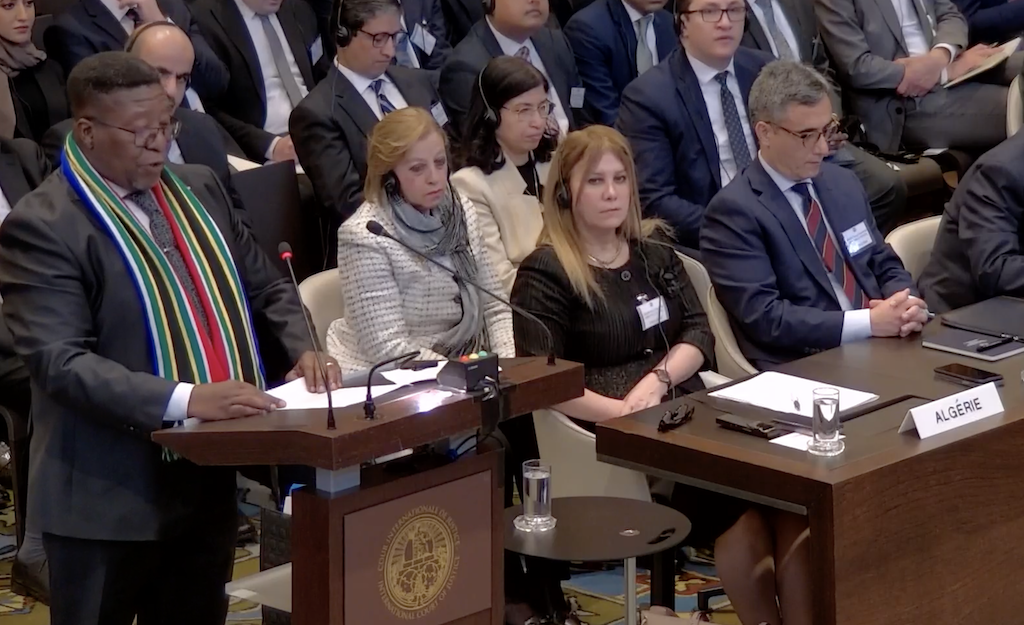
* With Reuters











































